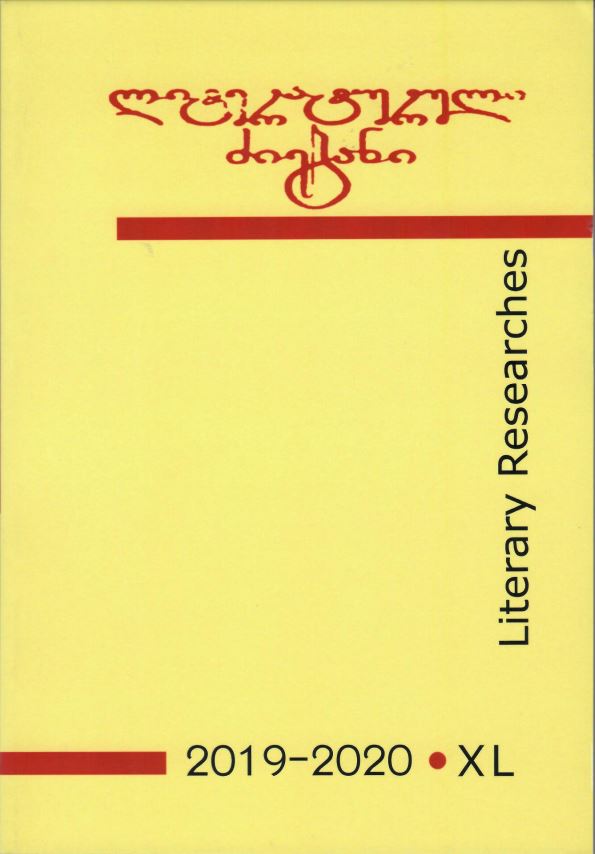Published 2020-10-20
Keywords
- Rubai,
- National,
- Social,
- Ethical Issues
How to Cite
Abstract
The work provides discussion of Elguja Marghia’s “Rubais of Picaresque Age”. Rubai, form of Persian verse includes only four lines. When time is so “expensive”, such laconism is
optimal but these narrow scopes should include the depth of the thought and dramatic emotions, tragedy of life and ways of escape. Style of the classical rubai, regarding its specific nature, is epigrammatic and this obligates the poet to capture both, wisdom and beauty.
Elguja Marghia’s successful attempts in the genre of rubais, clearly demonstrates the author’s profile: reflective, chary of words, deeply thinking, aesthete…
Main things he desired to say were about the national, social, ethical issues.
Poet’s pain, primarily, is the native land. Only historical memory has maintained the episodes of victory and power while the present is severe: native land fragmented with the
barbed wire… faded values…
For Elguja Marghia the nation is not divided from the moral, like in the ideas of the great artists (David Guramishvili, Sulkhan-Saba…), who have associated ruining and devastation of the country with the moral degradation of people.
Irrespective of numerous weaknesses, poet regards that one of the features of Georgians was “being Avtadil”. Rustaveli’s character, his alter ego, the symbol of fidelity, self-sacrifice, dignity and reasonability, have always been the moral lodestar of Georgian men (“Rubai of Avtandil”).
The poet creates the portraits of the figures sacral for Georgian nation, among them: Shota Rustaveli, Sulkhan-Saba Orbeliani, Akaki Tsereteli, Galaktioni, as well as Zviad Gamsakhurdia and Kaikhosro Cholokashvili.
Poet paints the pictures of nature in very refined, impressive context: “Being along in the
nature is like unburdening one’s heat…”
Rubais by Elguja Marghia have Georgian soul, marked with the wounds of the nation, striving to heaven. Pure, metaphoric images are like the ornaments in his miniatures. The reader feels the charm of this esthetics, its soothing effect and believes: “Rubai is a healer of soul, like mallow”.

